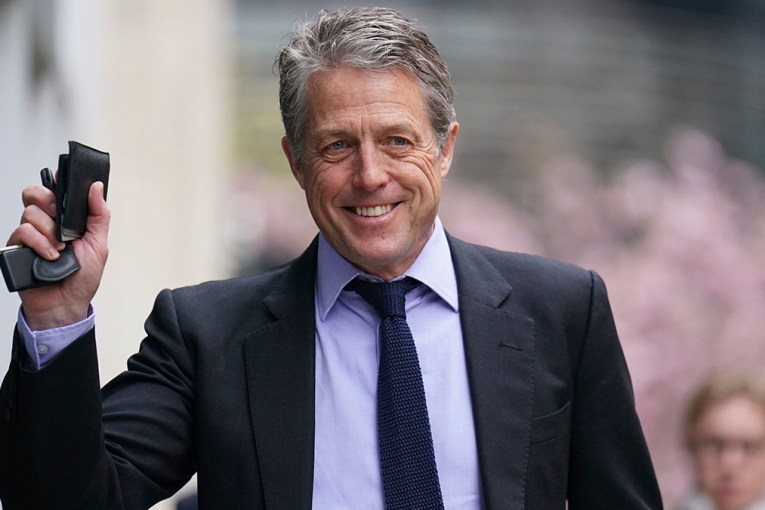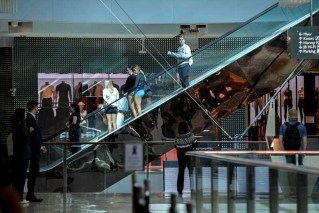NATO has announced it will take additional steps to strengthen the alliance’s deterrence and defence after Russia launched an invasion of Ukraine.
The defence alliance will also hold an emergency summit of its 30 member nations on Friday.
Russian forces invaded Ukraine by land, air and sea on Thursday, confirming the worst fears of the West with the biggest attack by one state against another in Europe since World War II.
“Peace on our continent has been shattered,” NATO Secretary-General Jens Stoltenberg told a news conference.
“Russia is using force to try to rewrite history, and deny Ukraine its free and independent path.”

NATO Secretary-General Jens Stoltenberg slammed Russia’s reckless and unprovoked attack on Ukraine. Photo: EPA
The measures planned by NATO “will enable us to deploy capabilities and forces, including the NATO Response Force,” he said.
NATO said earlier in a statement, after a meeting of the alliance’s ambassadors in Brussels, that it had decided “to take additional steps to further strengthen deterrence and defence across the alliance. Our measures are and remain preventive, proportionate and non-escalatory.”
NATO is planning to create battle group structures like it already has in Baltic states for the countries on its eastern flank, Slovak Foreign Minister Ivan Korcok said on Thursday, adding the move would include Slovakia.
Mr Stoltenberg said leaders would hold a virtual emergency summit of NATO leaders on Friday.
“This is a deliberate, cold-blooded and long-planned invasion,” he said.
“Russia’s unjustified unprovoked attack on Ukraine is putting countless innocent lives at risk with air and missile attacks.”
EU vows ‘unprecedented isolation’ among sanctions
European Union leaders will discuss new, tough sanctions on Russia at an emergency meeting in reaction to its “barbaric attack” on Ukraine, the 27-nation bloc’s officials say.
Russian forces fired missiles at several cities in Ukraine and landed troops on its coast on Thursday, officials and media said, after President Vladimir Putin authorised what he called a special military operation in the east.

EU Commission president Ursula von der Leyen. Photo: Getty
“President Putin is responsible for bringing war back to Europe,” European Commission chief Ursula von der Leyen said, adding that the EU would hold him “accountable for that”.
“With this package, we will target strategic sectors of the Russian economy by blocking their access to key technologies and markets,” she said in an emergency statement.
“We will weaken Russia’s economic base and its capacity to modernise.
“In addition, we will freeze Russian assets in the EU and stop the access of Russian banks to the European financial market.”
The EU approved a first round of sanctions on Wednesday, including blacklisting Russian politicians and curbing trade between the EU and two breakaway regions of eastern Ukraine whose independence Putin has recognised.
The new measures to be discussed at a Thursday evening summit of national EU leaders will be “the harshest package of sanctions we have ever implemented,” the bloc’s foreign policy chief Josep Borrell said.
“This is among the darkest hours for Europe since the end of World War II.. Russia’s leadership will face unprecedented isolation.”
The EU will also prepare a new aid package for Ukraine
Ukraine cuts diplomatic ties with Russia

Ukrainian President Volodymyr Zelensky. Photo: Getty
Ukraine’s president says his country has cut diplomatic ties with Russia after it was attacked.
Ukrainian President Volodymyr Zelenskyy announced the decision to rupture ties with Moscow on Thursday after it launched a massive air and missile attack on its neighbour and Russian forces were seen rolling into Ukraine.
Ukrainian officials say the country’s military is fighting back and asked for Western defence assistance.
How the attacks began
Russian forces have invaded Ukraine by land, air and sea, confirming the worst fears of the West with the biggest attack by one state against another in Europe since World War II.
Russian missiles rained down on Ukrainian cities.
Ukraine reported columns of troops pouring across its borders into the eastern Chernihiv, Kharkiv and Luhansk regions, and landing by sea at the port cities of Odessa and Mariupol in the south.
Explosions could be heard before dawn in the capital Kyiv. Gunfire rattled, sirens blared across the city and the highway out became choked with traffic as residents tried to flee.
EU foreign affairs chief Josep Borrell said: “These are among the darkest hours of Europe since the Second World War.”
Unconfirmed reports of casualties
Initial reports of casualties were sporadic and unconfirmed.
Ukraine reported at least eight people killed by Russian shelling and three border guards killed in the southern Kherson region.
Ukraine’s military said it had destroyed four Russian tanks on a road near Kharkiv, killed 50 troops near a town in Luhansk region, and downed six Russian warplanes in the east.
Russia denied reports that its aircraft or armoured vehicles had been destroyed. Russian-backed separatists claimed to have downed two Ukrainian planes.
In a televised declaration of war in the early hours, Mr Putin said he had ordered “a special military operation” to protect people, including Russian citizens, subjected to “genocide” in Ukraine, an accusation the West calls absurd propaganda.
“And for this we will strive for the demilitarisation and denazification of Ukraine,” Mr Putin said.
“Russia cannot feel safe, develop, and exist with a constant threat emanating from the territory of modern Ukraine…All responsibility for bloodshed will be on the conscience of the ruling regime in Ukraine.”








